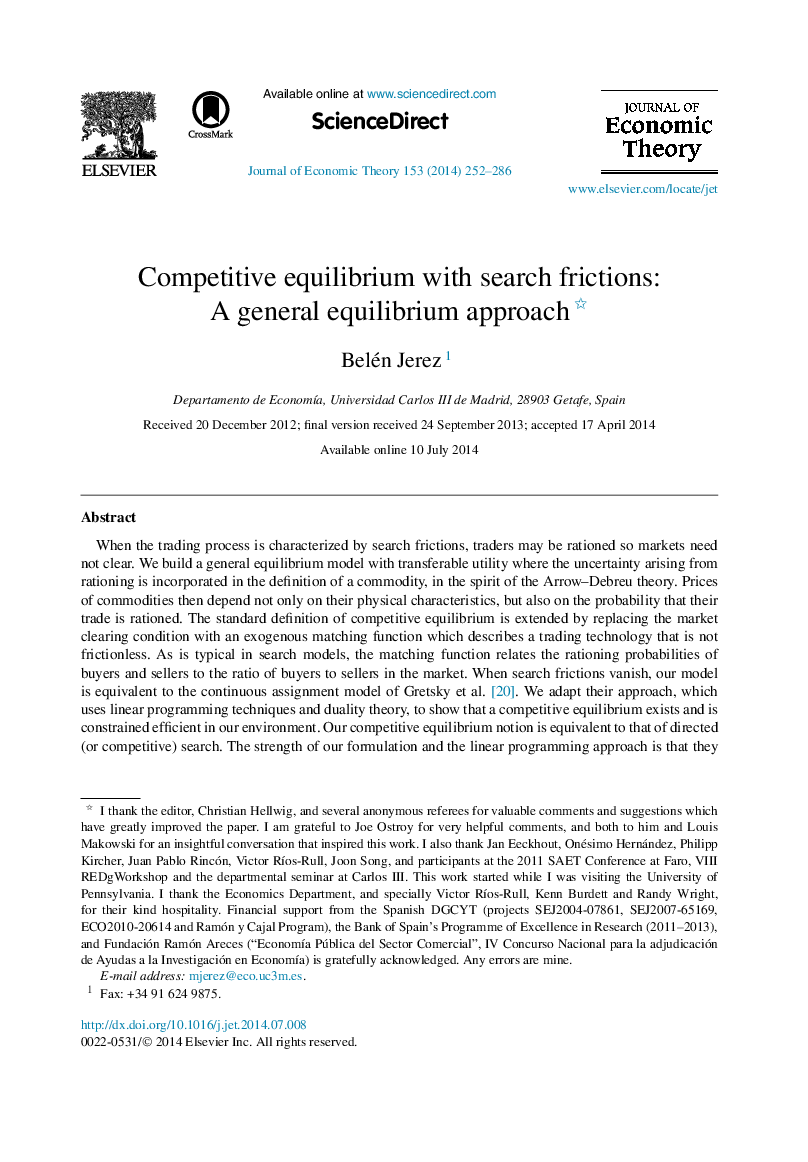| Article ID | Journal | Published Year | Pages | File Type |
|---|---|---|---|---|
| 956641 | Journal of Economic Theory | 2014 | 35 Pages |
When the trading process is characterized by search frictions, traders may be rationed so markets need not clear. We build a general equilibrium model with transferable utility where the uncertainty arising from rationing is incorporated in the definition of a commodity, in the spirit of the Arrow–Debreu theory. Prices of commodities then depend not only on their physical characteristics, but also on the probability that their trade is rationed. The standard definition of competitive equilibrium is extended by replacing the market clearing condition with an exogenous matching function which describes a trading technology that is not frictionless. As is typical in search models, the matching function relates the rationing probabilities of buyers and sellers to the ratio of buyers to sellers in the market. When search frictions vanish, our model is equivalent to the continuous assignment model of Gretsky et al. [20]. We adapt their approach, which uses linear programming techniques and duality theory, to show that a competitive equilibrium exists and is constrained efficient in our environment. Our competitive equilibrium notion is equivalent to that of directed (or competitive) search. The strength of our formulation and the linear programming approach is that they allow us to generalize the constrained efficiency and existence results in the directed search literature to a much broader class of economies. Our framework also opens the door to the use of existing algorithms for computing equilibria and taking these models to the data.
